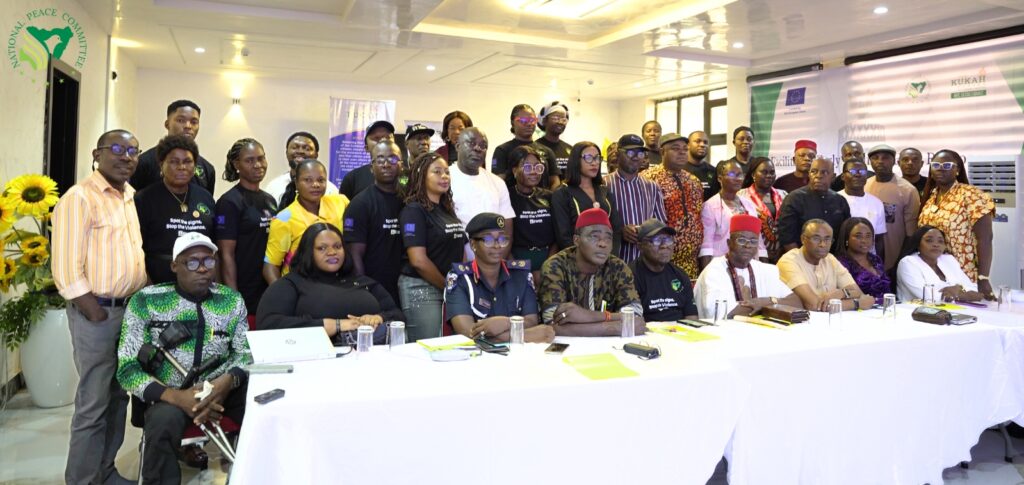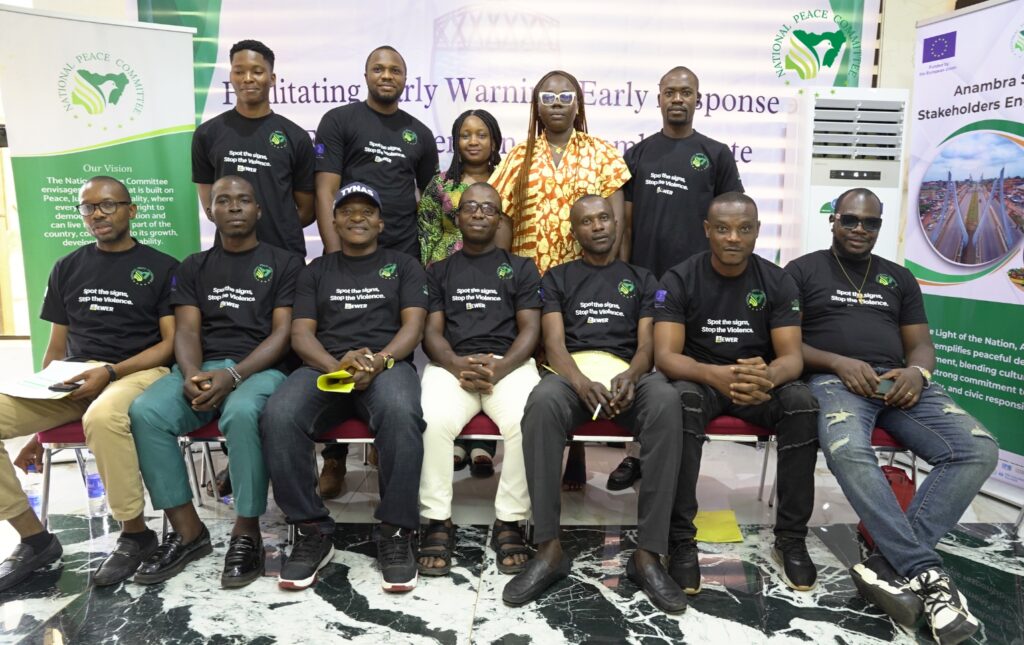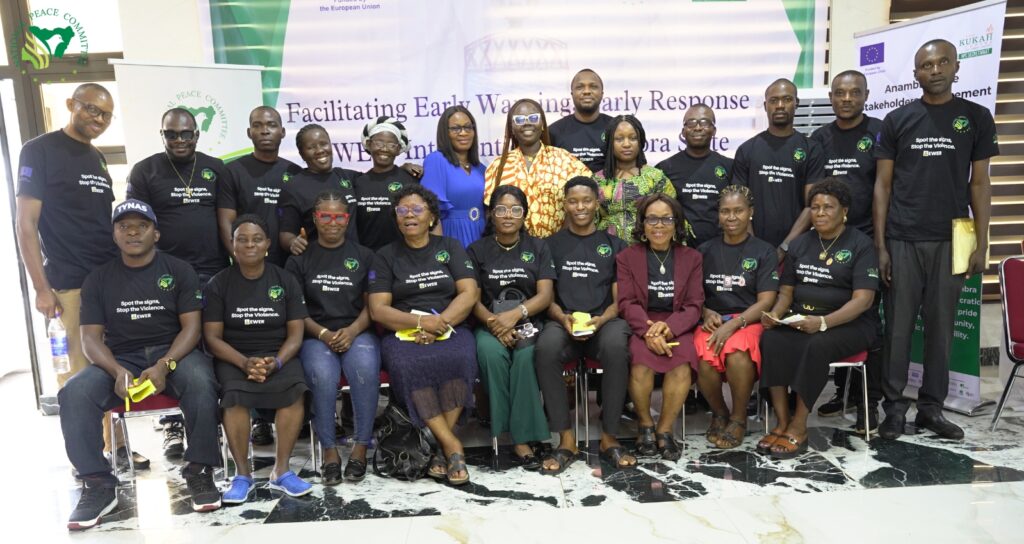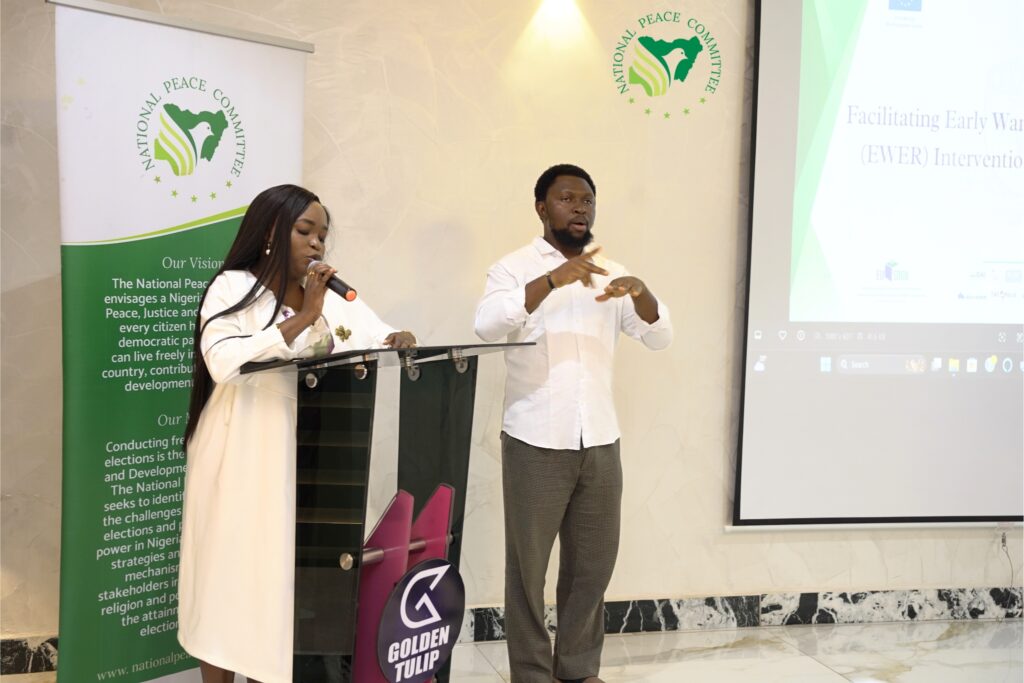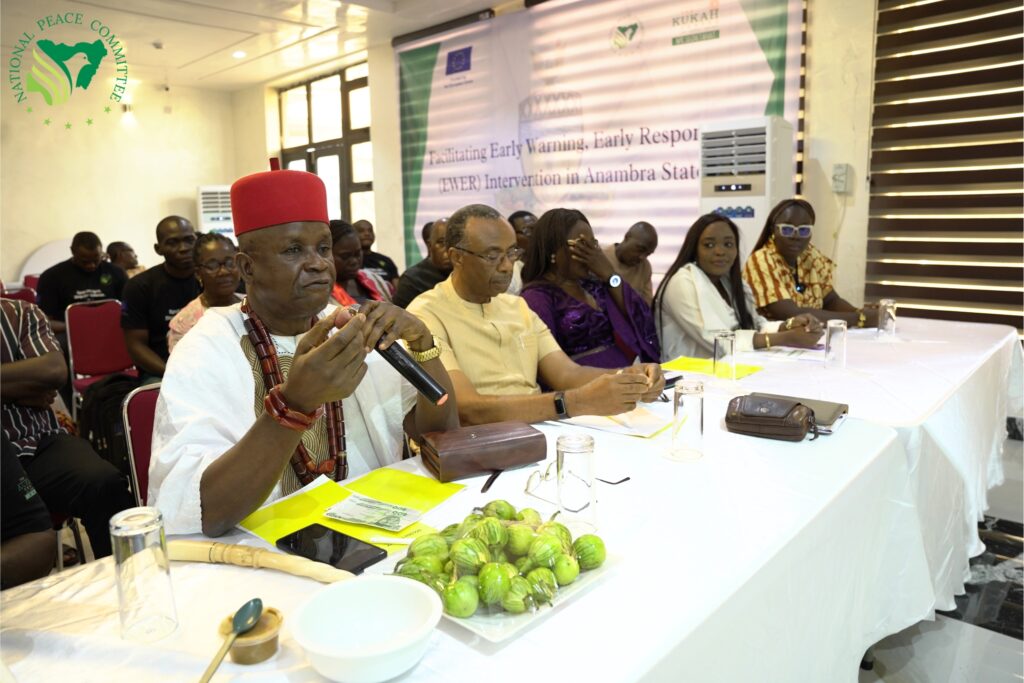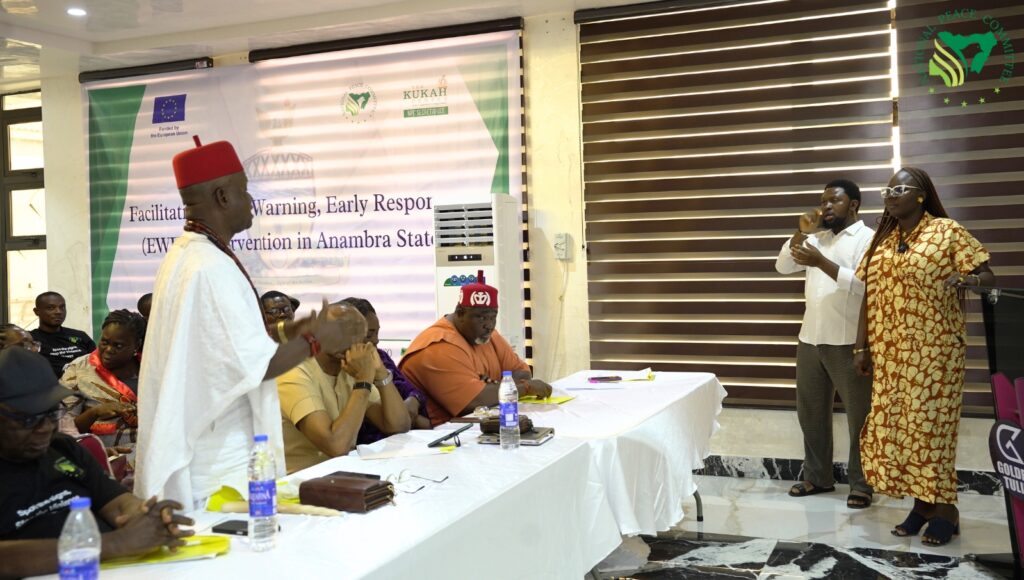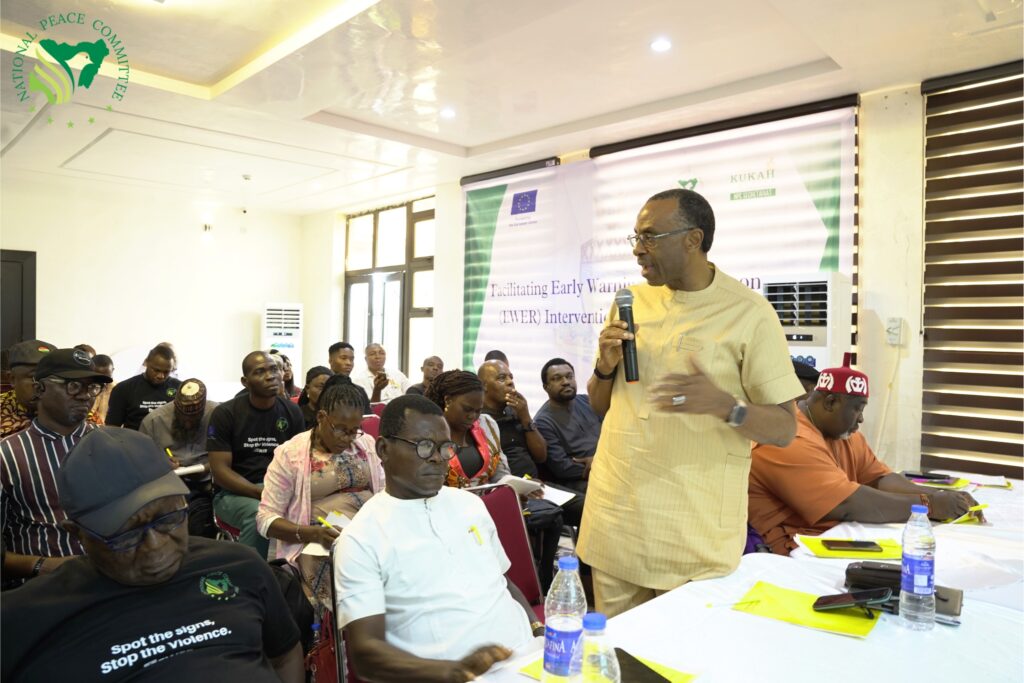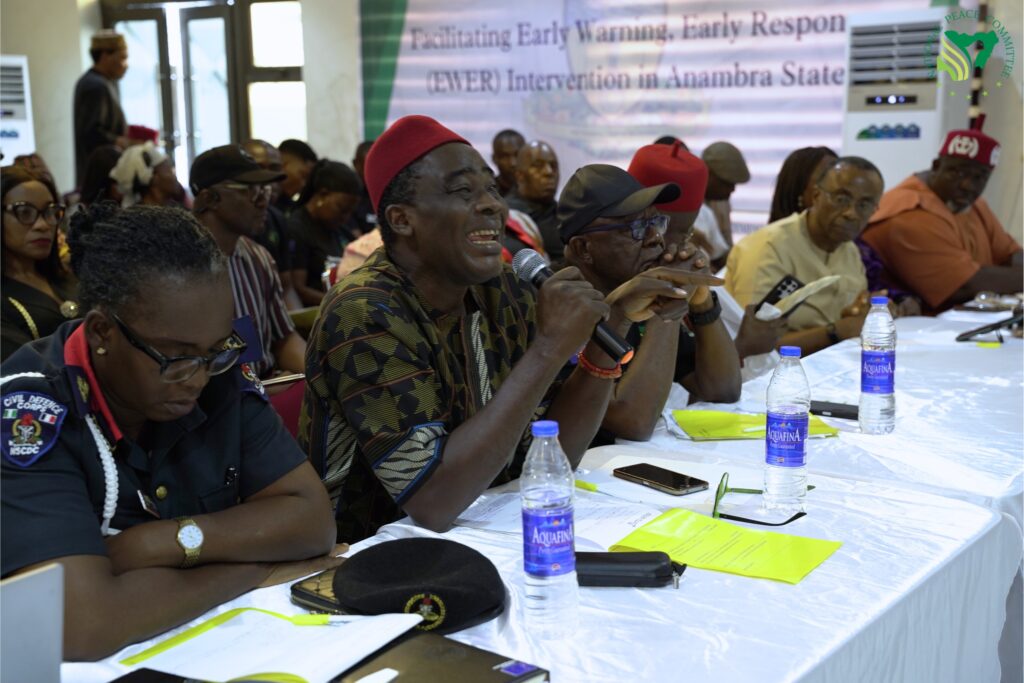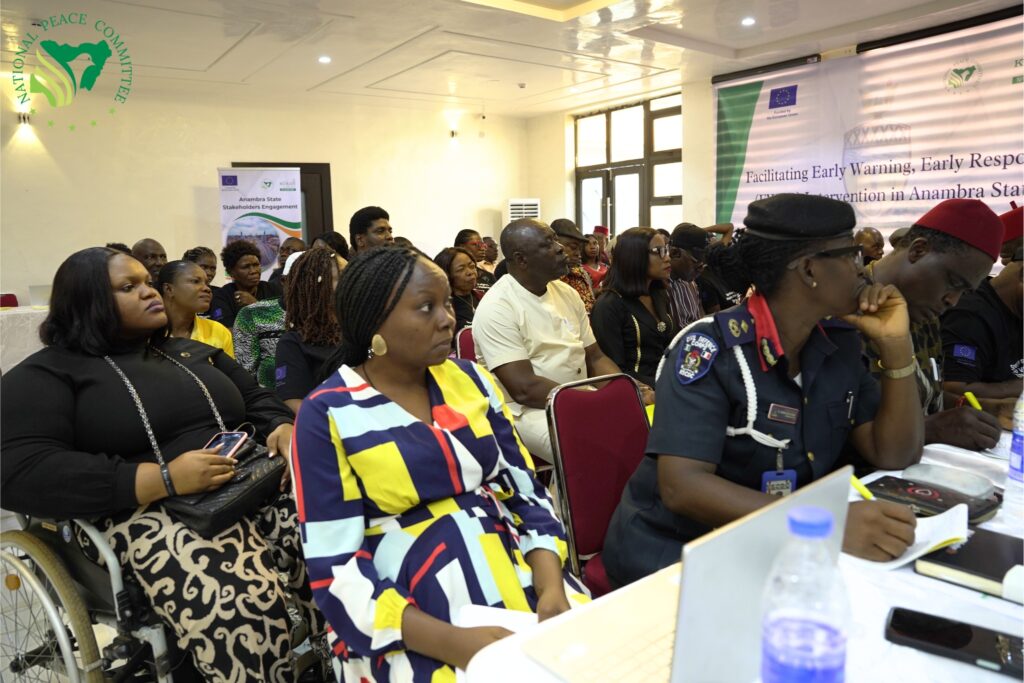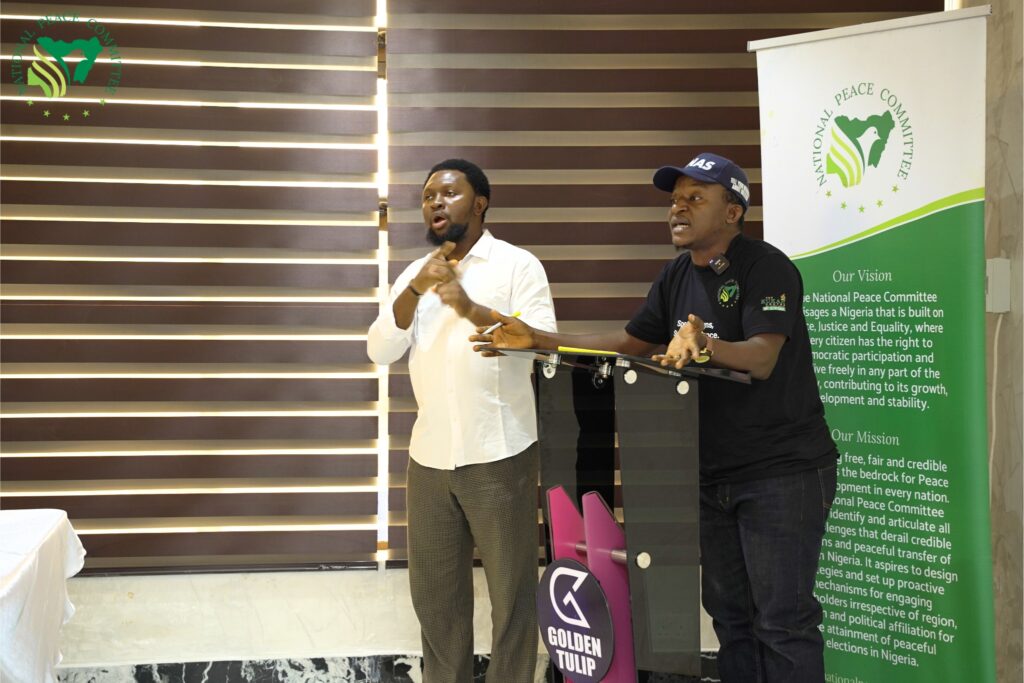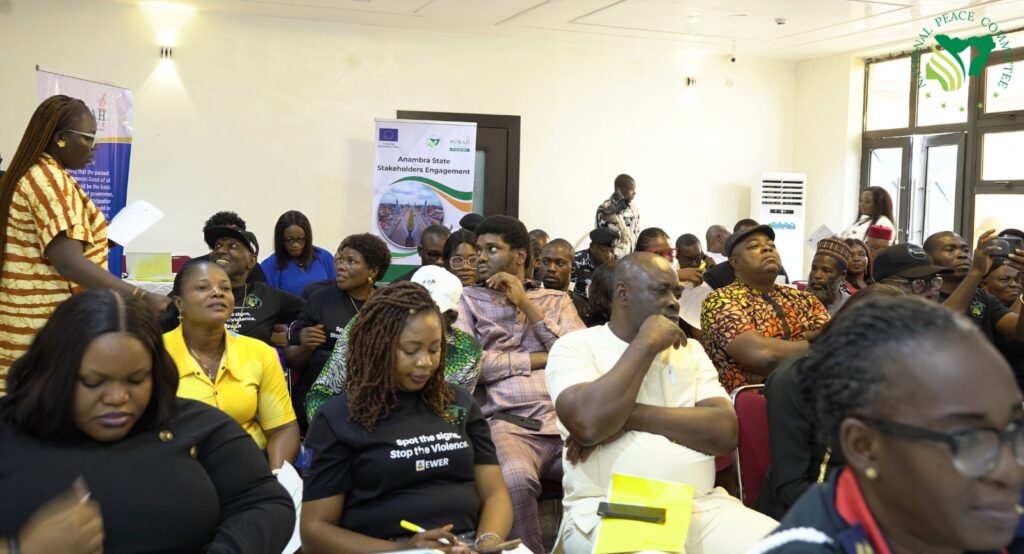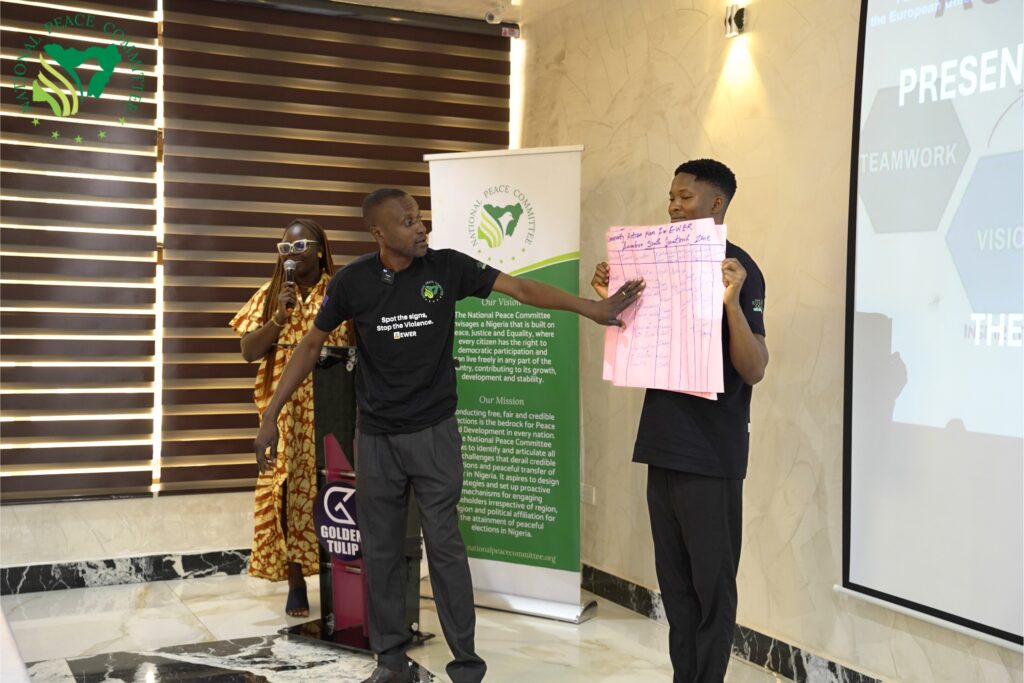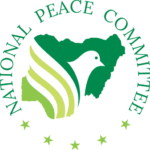Ahead of the November off-cycle gubernatorial election in Anambra State, The Kukah Centre, Secretariat of the National Peace Committee (NPC), launched a four-day Early Warning, Early Response (EWER) intervention. The initiative was designed to strengthen institutional and community capacity to detect, verify, and respond to early warning signs of electoral violence before they escalate into conflict.
Day 1 – Building the Foundations
Day 1 set the tone as community monitors engaged the core of early warning — identifying risks, interpreting indicators, and applying conflict-mapping tools grounded in local realities. Through dialogue and hands-on exercises, participants saw how grassroots knowledge, when systematized, becomes a powerful instrument for peacebuilding. The day closed with a collective resolve: to turn vigilance into foresight, and foresight into coordinated action for the peace and stability of Anambra State.
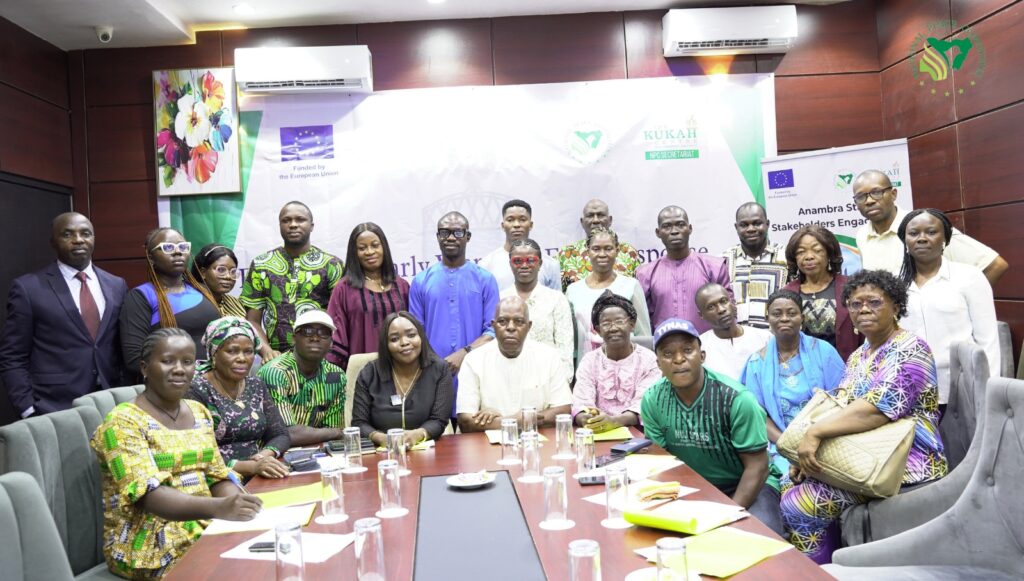
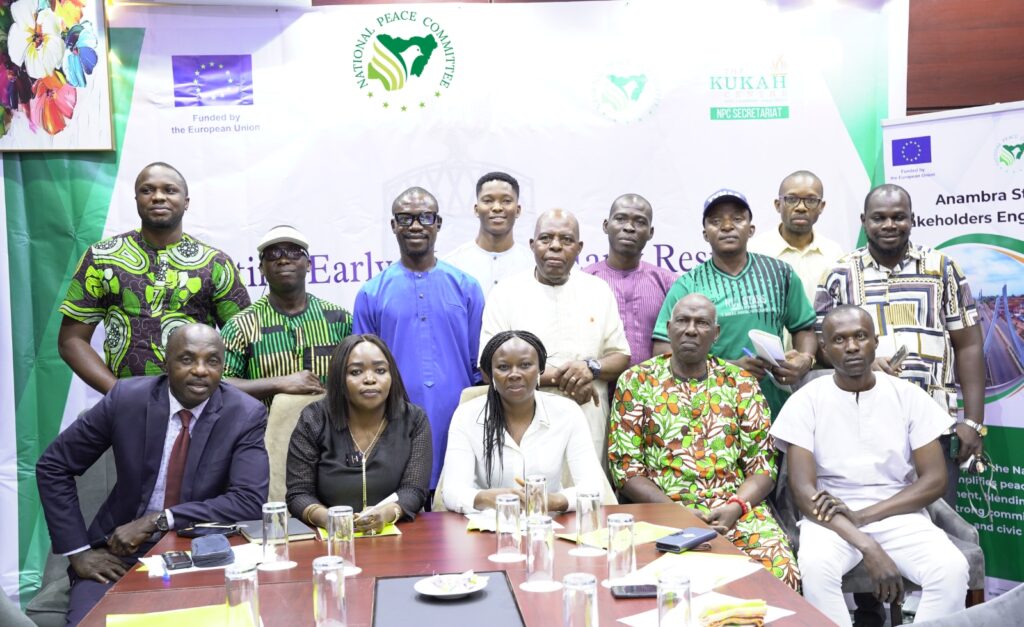
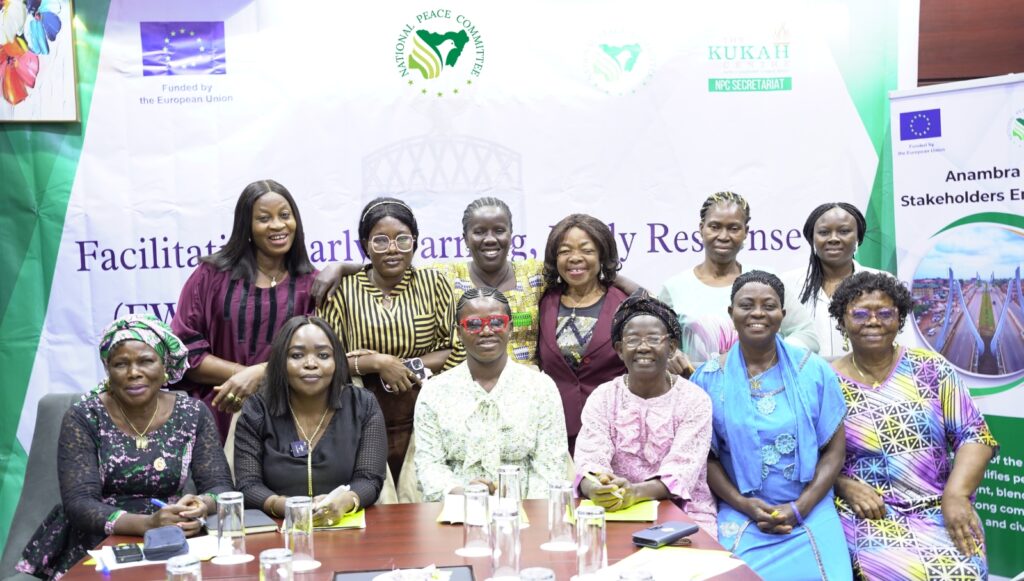
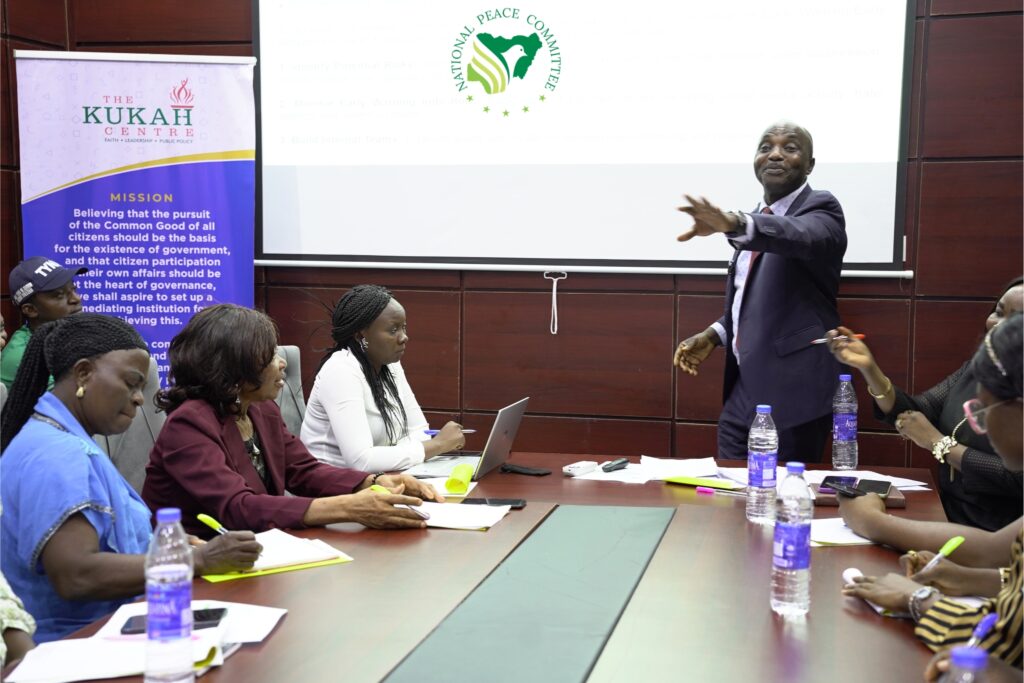
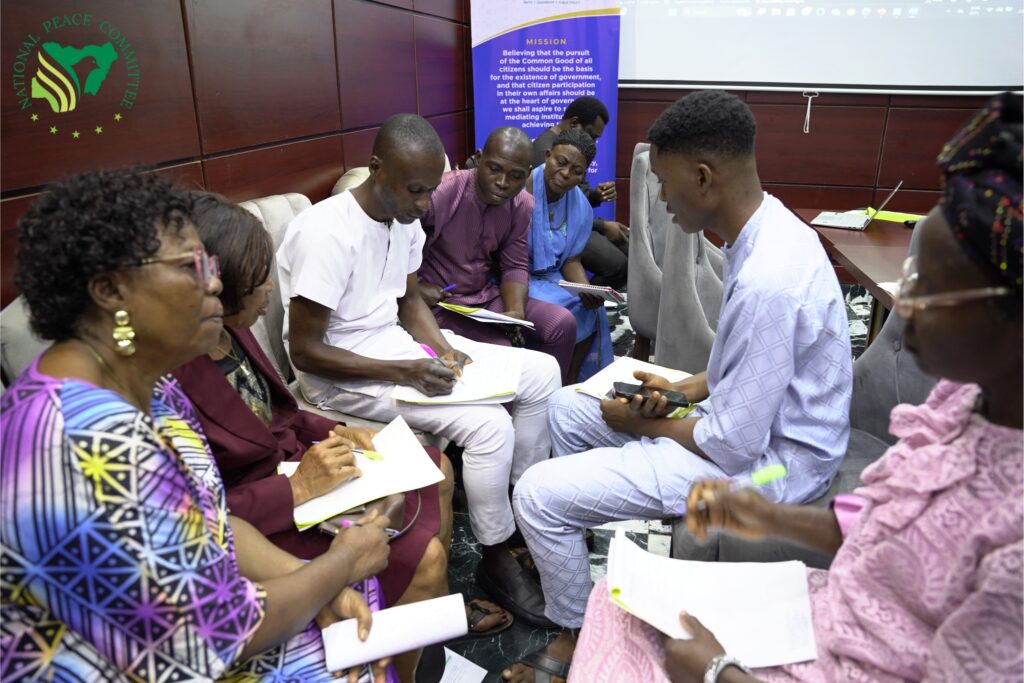
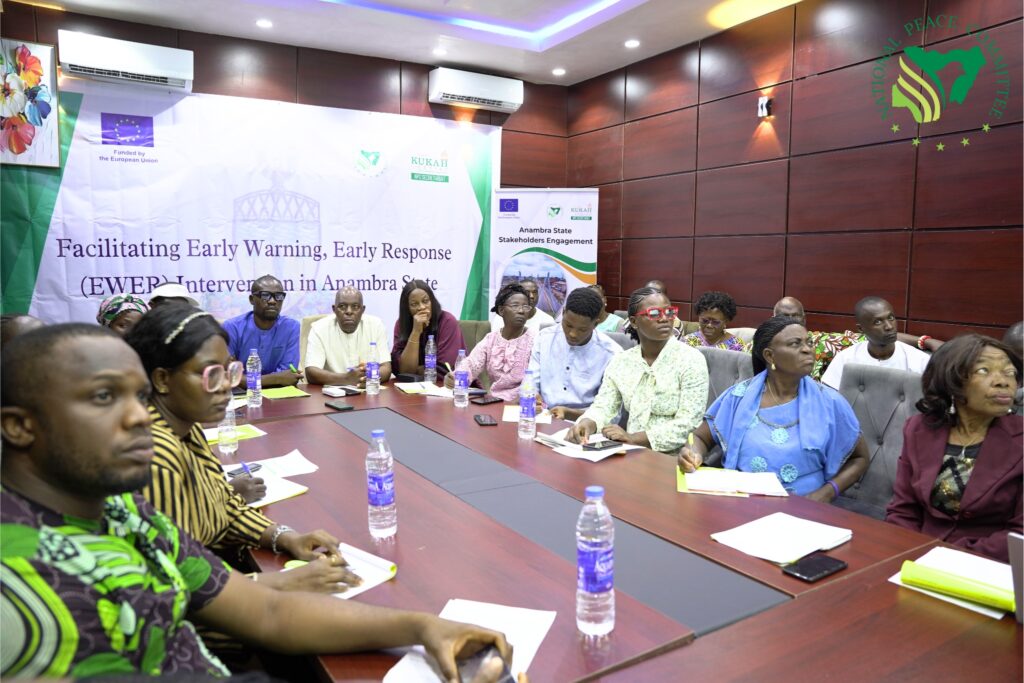
Day 2 – Building Credibility
Day 2 of the Early Warning and Early Response intervention shifted from laying foundations to sharpening precision. The spotlight was on what makes early warning credible: rigorous verification, clear documentation, and disciplined reporting. Participants engaged with tools and protocols designed to sift fact from rumor, and urgency from mere noise. The sessions underscored that credible information is never just gathered, it is tested, refined, and trusted. By the close of the day, monitors had strengthened their ability to convert scattered signals into reliable intelligence, reinforcing the backbone of Anambra’s EWER system.
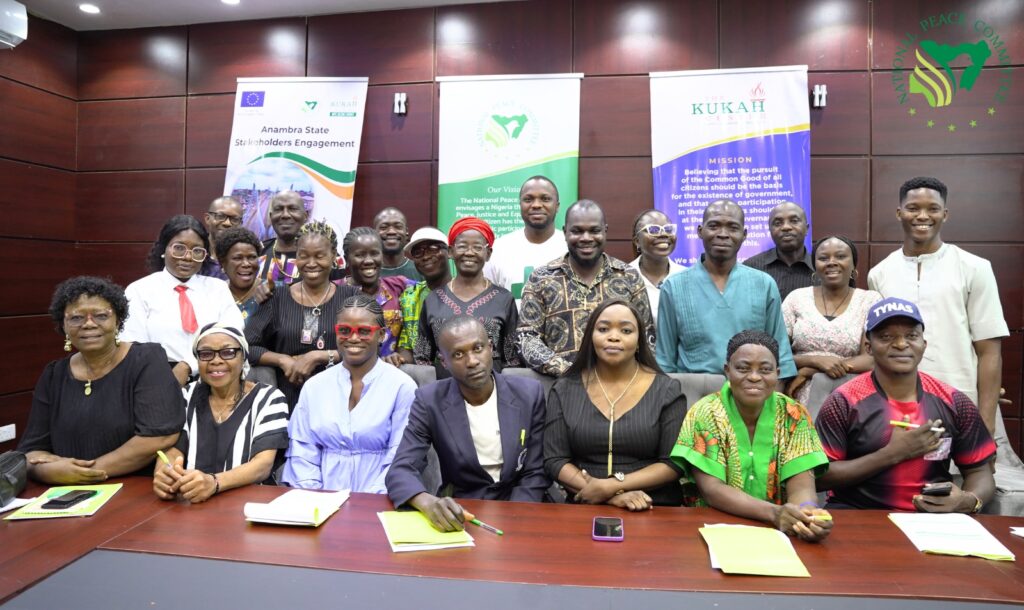
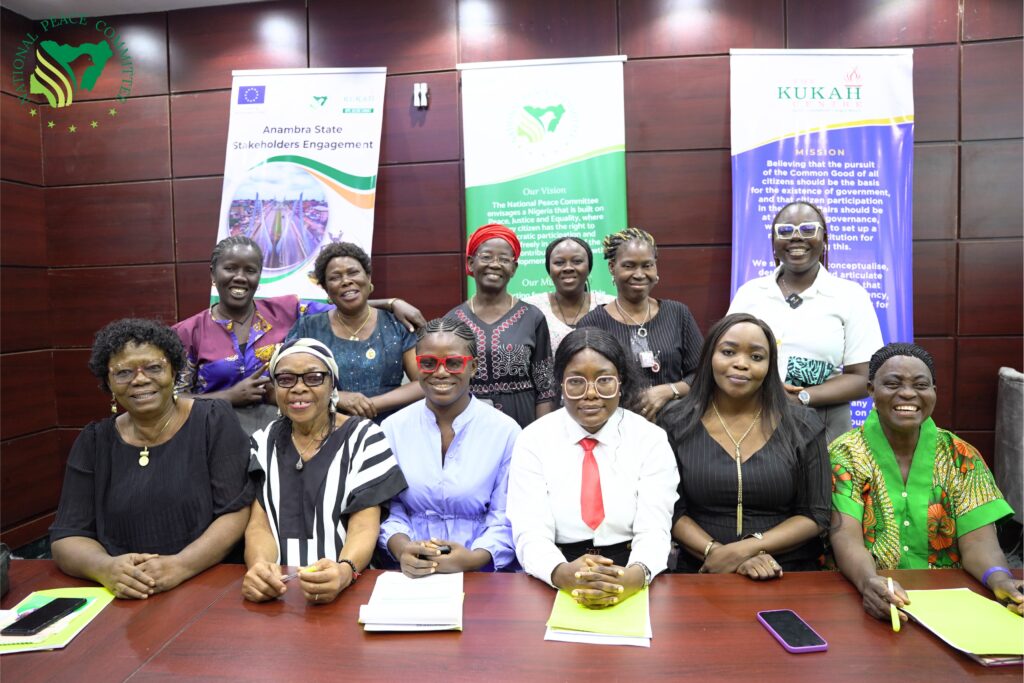
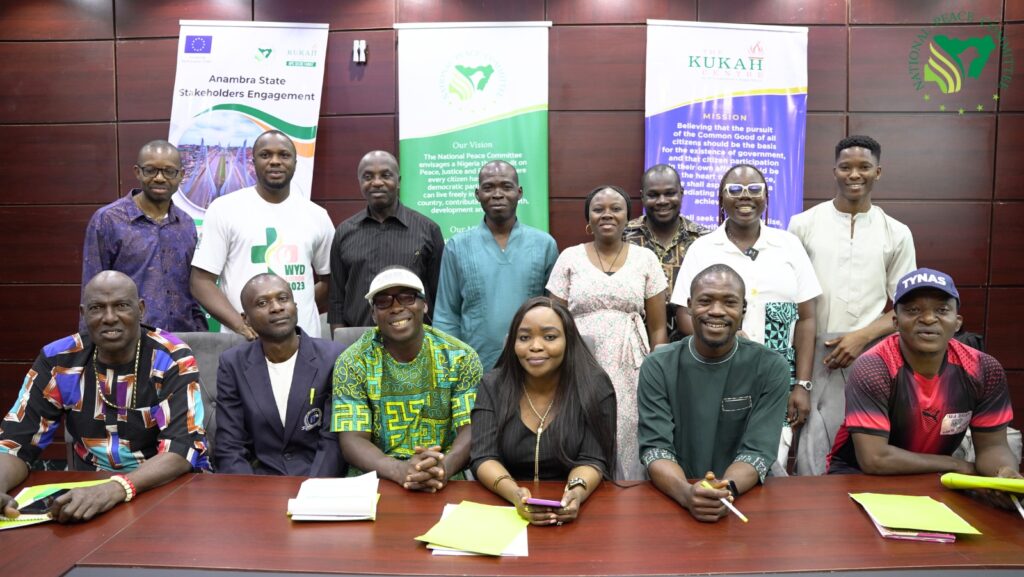
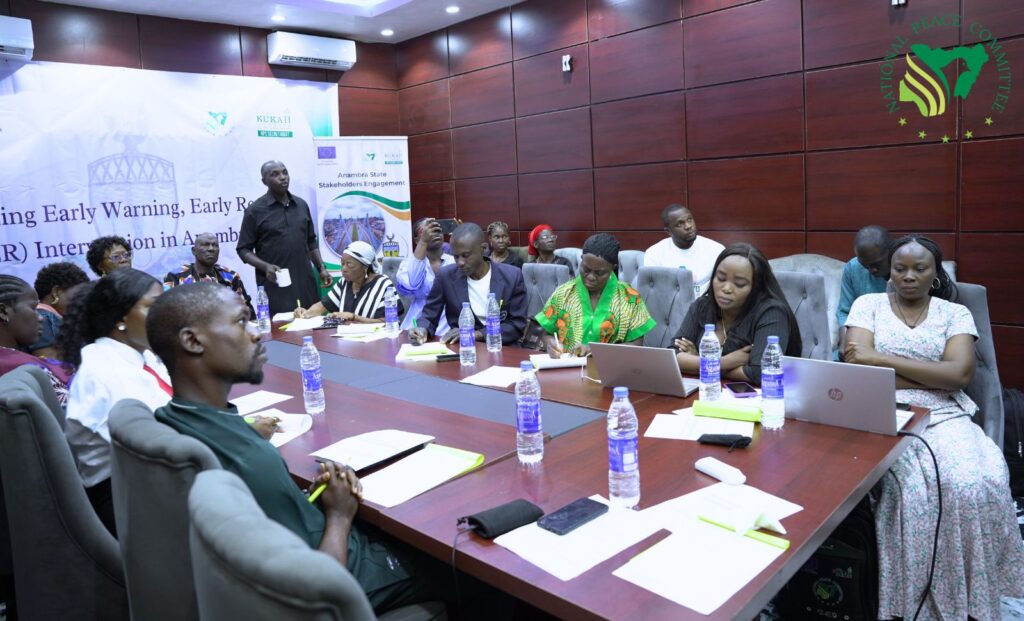
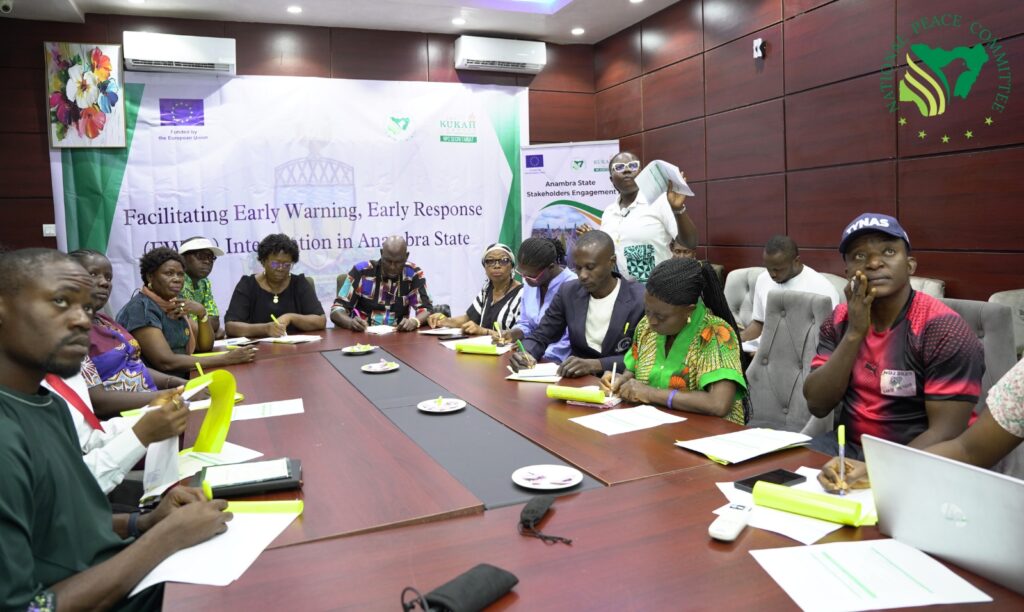
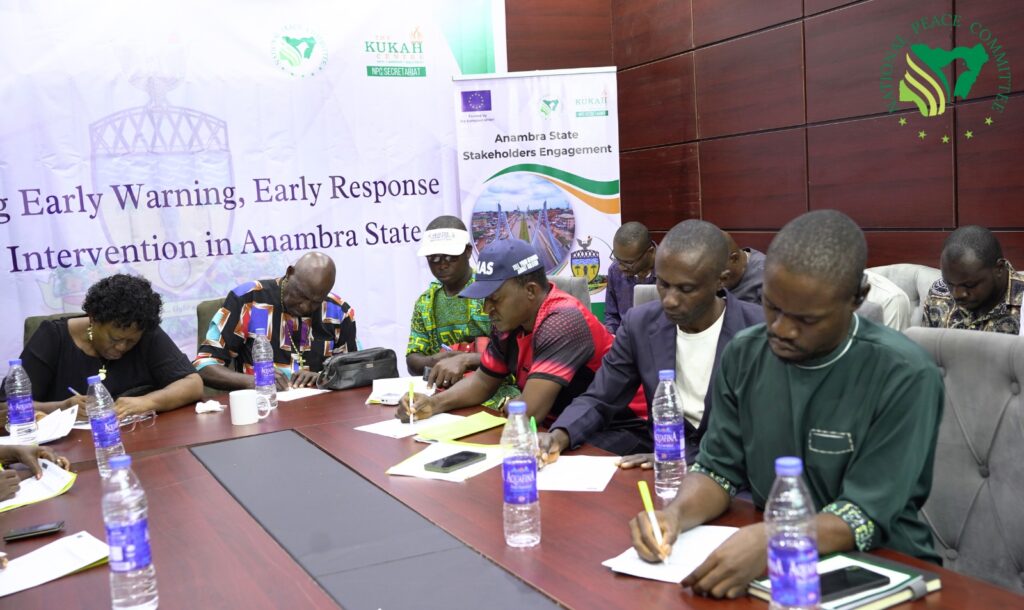
Day 3 – Linking Warning to Action The third day placed emphasis on moving from information to response. Participants examined how verified signals can serve as triggers for timely and coordinated interventions across institutions and communities. Through structured, scenario-based discussions, they mapped out practical pathways for collaboration among key institutional stakeholders. The day reinforced a central principle: early warning only fulfills its purpose when it is effectively translated into swift, coordinated, and meaningful action.
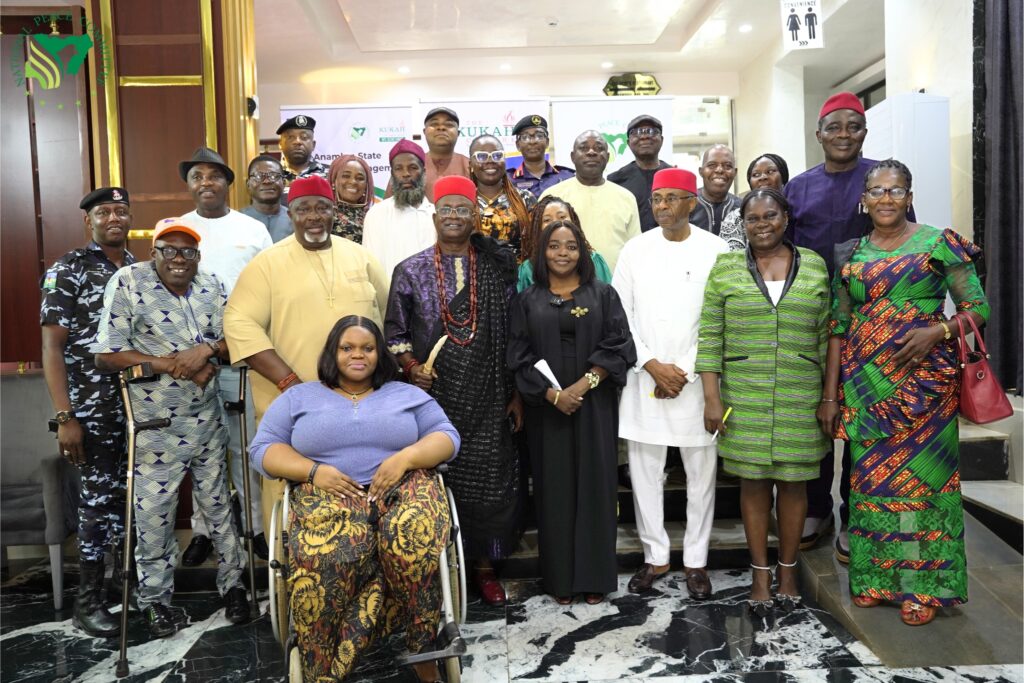
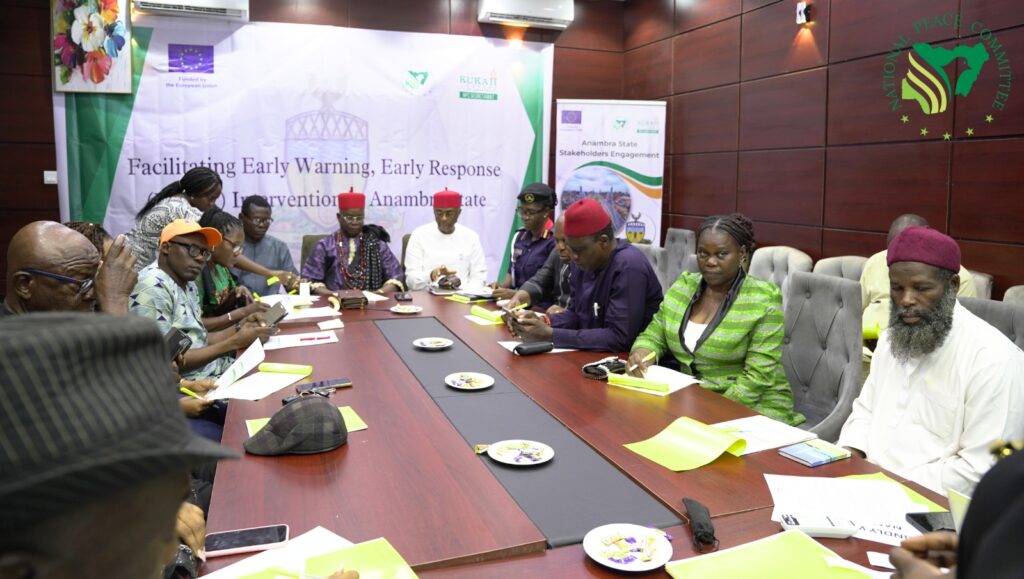
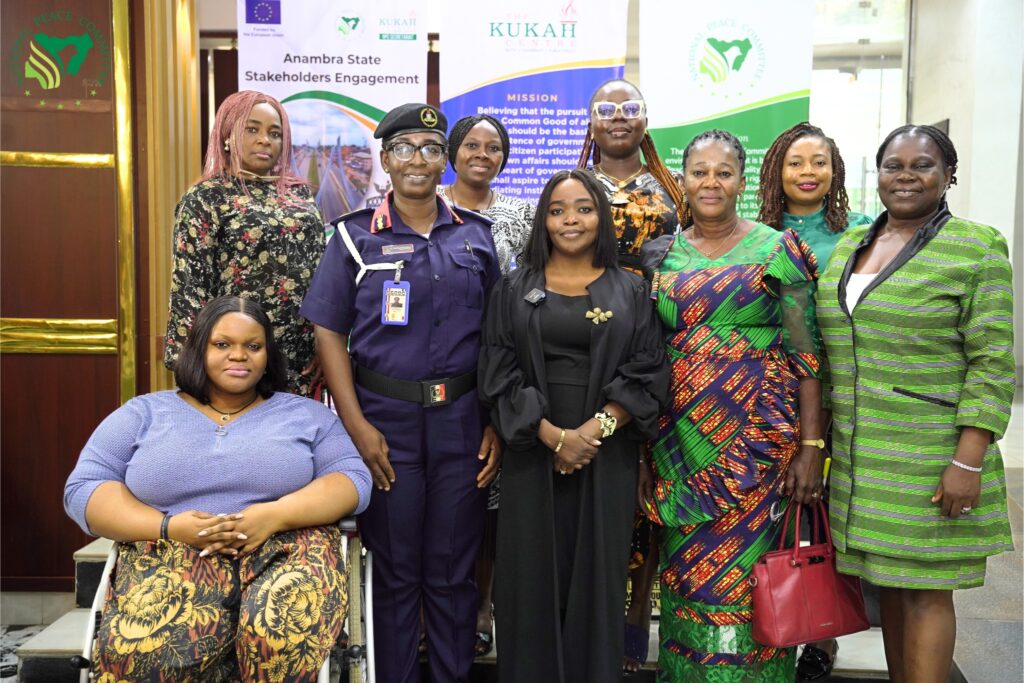
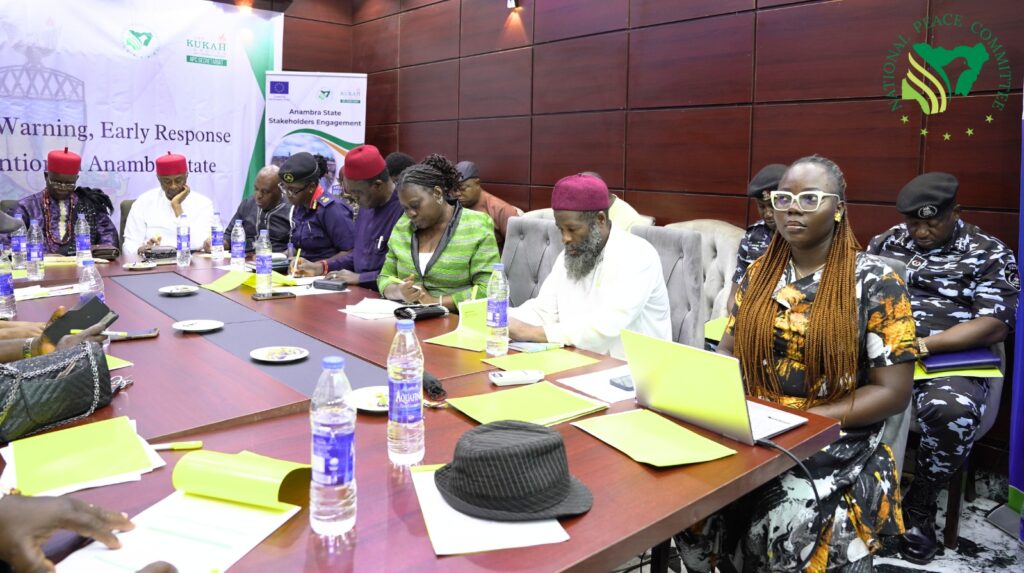
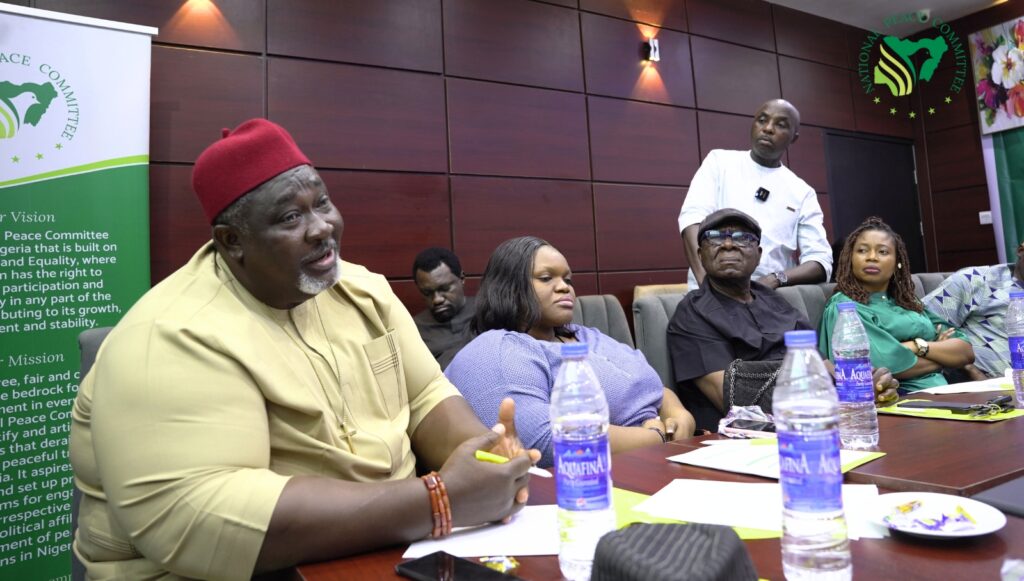
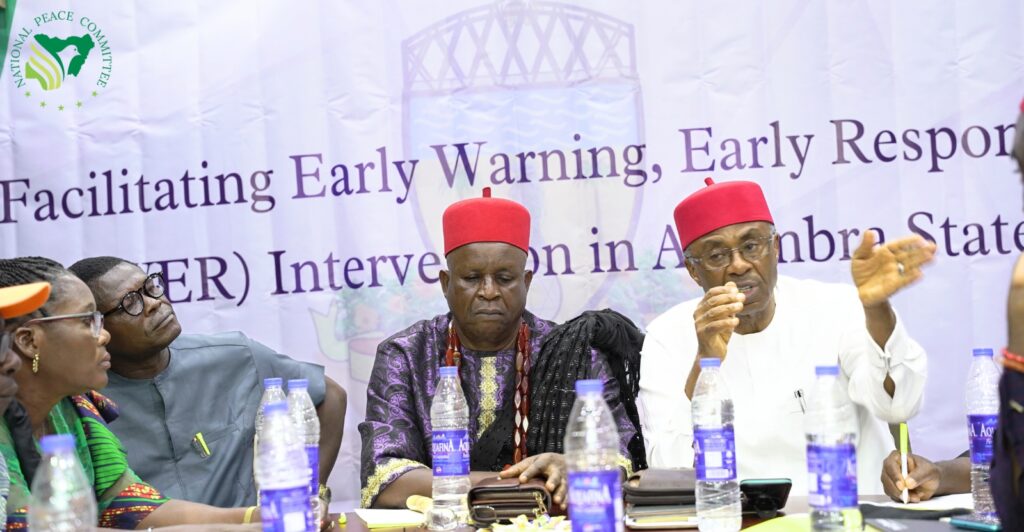
Day 4 – Commitment and Inauguration The final day concluded with the formal inauguration of the Anambra EWER System by the National Peace Committee. Stakeholders from across the state pledged to continue monitoring and mitigating potential threats across all 21 LGAs, translating four days of shared engagement into a lasting framework for peace. What emerged was more than an intervention, it was a collective commitment to advancing Anambra’s democratic process, fostering confidence in institutions, and upholding the promise of peaceful, credible elections.
